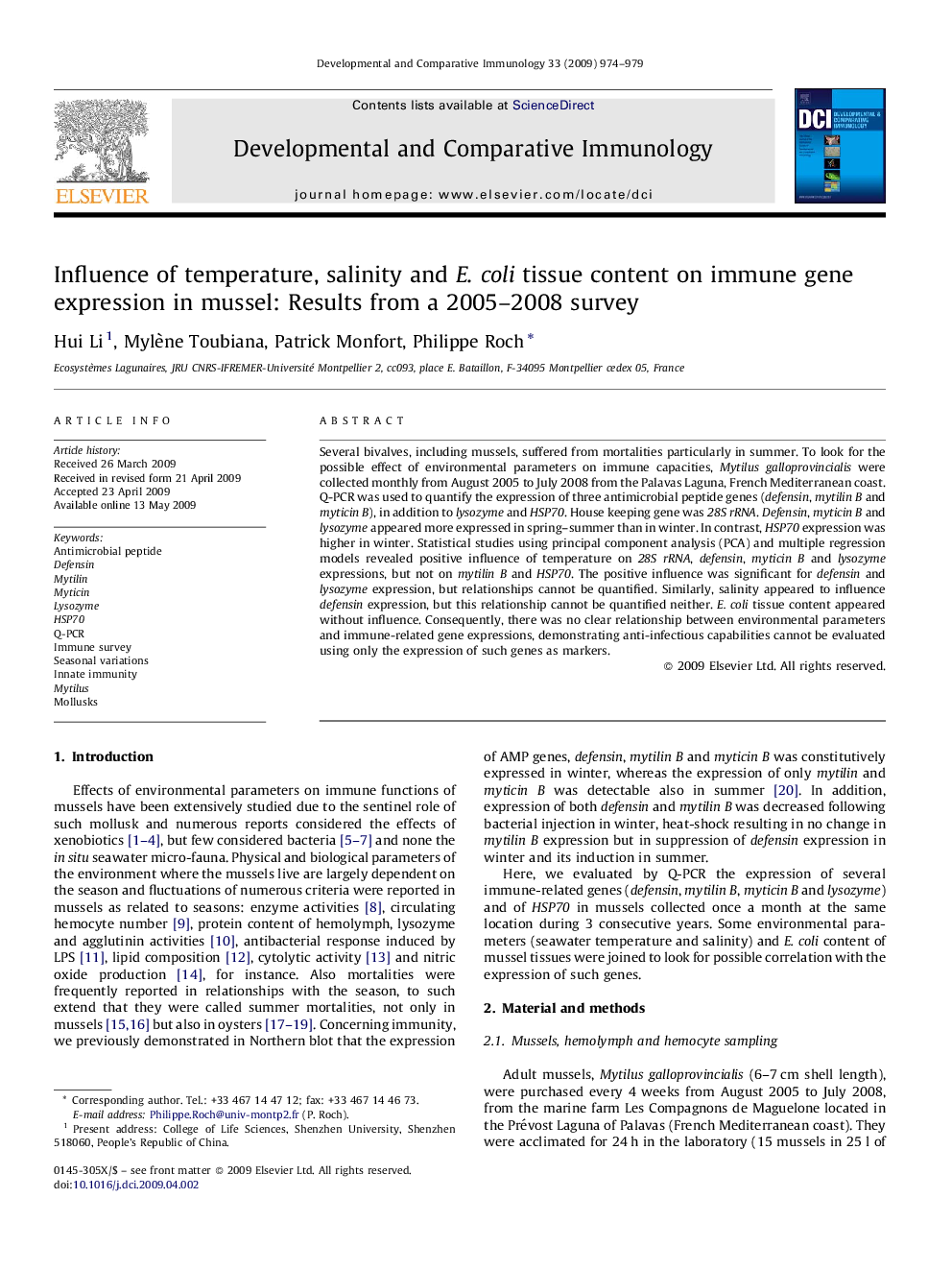| Article ID | Journal | Published Year | Pages | File Type |
|---|---|---|---|---|
| 10971701 | Developmental & Comparative Immunology | 2009 | 6 Pages |
Abstract
Several bivalves, including mussels, suffered from mortalities particularly in summer. To look for the possible effect of environmental parameters on immune capacities, Mytilus galloprovincialis were collected monthly from August 2005 to July 2008 from the Palavas Laguna, French Mediterranean coast. Q-PCR was used to quantify the expression of three antimicrobial peptide genes (defensin, mytilin B and myticin B), in addition to lysozyme and HSP70. House keeping gene was 28S rRNA. Defensin, myticin B and lysozyme appeared more expressed in spring-summer than in winter. In contrast, HSP70 expression was higher in winter. Statistical studies using principal component analysis (PCA) and multiple regression models revealed positive influence of temperature on 28S rRNA, defensin, myticin B and lysozyme expressions, but not on mytilin B and HSP70. The positive influence was significant for defensin and lysozyme expression, but relationships cannot be quantified. Similarly, salinity appeared to influence defensin expression, but this relationship cannot be quantified neither. E. coli tissue content appeared without influence. Consequently, there was no clear relationship between environmental parameters and immune-related gene expressions, demonstrating anti-infectious capabilities cannot be evaluated using only the expression of such genes as markers.
Keywords
Related Topics
Life Sciences
Biochemistry, Genetics and Molecular Biology
Developmental Biology
Authors
Hui Li, Mylène Toubiana, Patrick Monfort, Philippe Roch,
